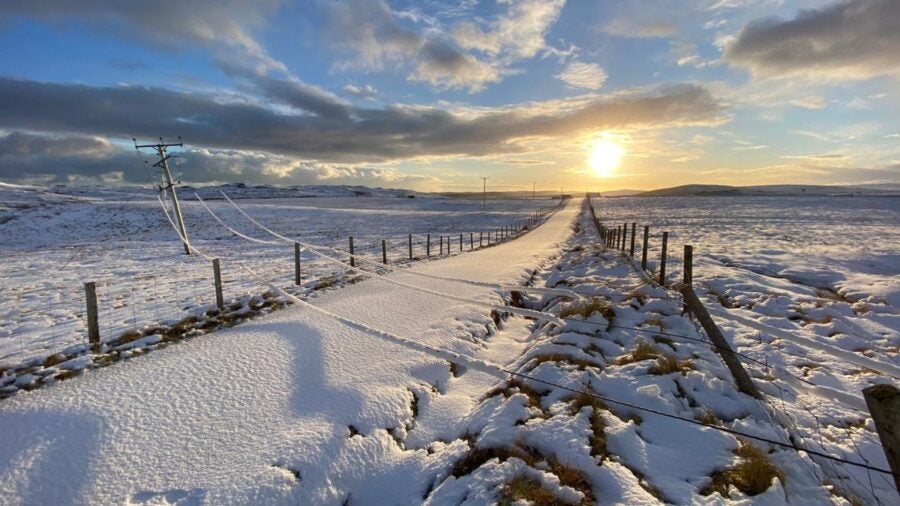
Businesses are investing in backup electricity sources as the recent cold weather puts mounting pressure on the UK’s energy supply.
Although the National Grid ESO maintains that it is “unlikely” that rolling blackouts, which it first warned of earlier this year, will be needed, the stark consequences of a power outage have meant that many companies have sought to improve their contingency plans, in case the worst should happen.
Kelly Cole, general manager of energy and transportation for power supplier Finning, says: “Businesses are taking the risk extremely seriously and investing in additional systems now, in case it becomes a reality.”
Sales of backup generators surge
The icy spell, which has seen temperatures drop below -15C in parts of the country, has done little to allay fears. Demand for Finning’s backup power supplies has surged by 35% among its customers and it saw its “best ever” month for sales in November.
The company provides power systems for businesses in sectors that include healthcare, retail, finance and construction. “We’re seeing a shift in our rental customers’ behaviour. They’re starting to plan further ahead than they normally would,” Cole adds. “It’s because of the risk of power shortages and the increased news attention about it.”
In the City of London, where power cuts could be particularly financially damaging, banks are increasingly wary about power constraints on the grid. Cole claims that several of the financial institutions that Finning works with have requested that no planned maintenance work be done on their backup power supplies during the winter months because they’re so fearful of losing access to their generators.
Businesses are taking the risk extremely seriously and investing in additional systems
Steve McGregor, managing director of property management firm DMA Group, says that its larger customers in the finance and health sectors are well aware of the risks. “They have been doing their ‘black building’ tests, so they will know exactly what happens when their uninterruptible power supply kicks in,” he says.
Data centres across Europe, which underpin many of the apps we use, have also been stockpiling diesel to fuel their generators over the winter. In Ireland, where data centres consume 14% of the country’s electrical energy, they have been warned that they may have to turn to backup power to reduce demand on the grid at certain peak times.
The consequences of power cuts for retailers could also be drastic, with the potential for chilled and frozen stock to spoil. Tesco and Morrisons have both stated that they are aligned with a statement from the British Retail consortium. The trade body says that “retailers have mitigation plans in place for various adverse scenarios to ensure any impacts on customers and shopping are managed effectively and kept to an absolute minimum”.
BT Group, which consumes around 0.8 to 1% of the UK’s energy, also remains confident of its contingency plans. Backup generators and batteries at all of its exchanges and a number of mobile mast sites will mean that any disruption is minimised.
How should businesses prepare for blackouts?
Although the chance of complete blackouts remains slim, the National Grid has other emergency measures that it can use to fill potential gaps in the energy supply. Last week, the operator warned that “enhanced actions” could be required to shore up power supplies.
This means that every business should be considering the full range of consequences, according to McGregor. “We’ve been made aware of a risk so we should be thinking about the maximum and the minimum impact it could have,” he adds. “Even the most well-informed businesses aren’t always aware of all the impacts.”
These can include losing access to heating, underground car parks becoming unsafe if the ventilation system stops working, or losing access to office buildings if the doors are electrically operated.
McGregor advises that businesses contact their building insurers to check their cover, reach out to electricity suppliers and carry out a ‘black building’ test to see what happens when all the power is turned off.
While many UK businesses are preparing for the worst, they will be hoping that the energy supply situation won’t be as challenging as that faced by those in the Shetland Islands.
Power cuts hit Shetland businesses

One area of the country which has already faced a severe power outage is Shetland. On Tuesday (13 December), the Scottish government declared a major incident after 3,800 households in the region were left without power, following heavy snowfall on Monday evening (12 December).
Scottish and Southern Electricity Networks, the distribution network operator for the islands, said the outage was caused by line icing – when an accumulation of snow and ice on power lines weighs them down, causing them to break – and described the conditions as “the worst they’ve seen in over 20 years”.
Skibhoul Bakery and Stores, which comprises a food shop and the most northerly bakery in the country, was left without power for 24 hours. Its remote location in Unst made it particularly vulnerable to an outage.
Adam Doull, general manager of Thulecraft, owners of Skibhoul Bakery and Stores, claims that the shop lost about £3,500 in sales while the business was closed. The power failure on Tuesday meant the bakery couldn’t make any products, he says. Meanwhile, poor conditions on the roads made the store inaccessible to its delivery van, which usually drops off supplies of milk, dairy products and chilled meat to the shop, and orders couldn’t be fulfilled.
“In this day and age, with barcode scanners and cashless payments, it’s almost impossible to open a shop when you don’t have power,” he says. “We spent most of the day trying to set up backup generators before the power eventually came back.”
But Doull claims “we were one of the lucky ones” as power was restored on Wednesday morning. Skibhoul Bakery and Stores is now looking at ways it can limit the impact on its businesses if a power failure on the island happens again.
Pat Burns, owner of The Final Checkout, has faced similar problems at her café and shop, although she says it was the loss of the internet that caused the most problems. “Without the internet we can’t use our Visa machines; I can’t use the system to add new stock to the till; and I can’t use our Sage systems to raise invoices,” she says. “It means that things have come to a standstill.”
As a result, the business has had to resort to issuing credit to its regular customers and asking that others only use cash to make purchases. “We are still trading, but we have to be careful about who we give credit to. We’re trying to take cash payments too but that’s difficult because nobody carries cash these days.”
Although Burns says the café only has a small turnover, she estimates that up to £5,000 in revenue could have been lost due to the disruption. “We still had to pay staff even though they weren’t working,” she adds. “I lost all the ice cream in my freezers too but, when I realised the power cut was going to be longer term, I managed to transfer the rest of the frozen items into one of our larger freezers and connected it to a generator.”
Burns adds that longer-term contingency plans, such as investing in a large generator to supply the entire business, would be “very costly” and “probably not cost-effective to do”.

Businesses are investing in backup electricity sources as the recent cold weather puts mounting pressure on the UK’s energy supply.
Although the National Grid ESO maintains that it is “unlikely” that rolling blackouts, which it first warned of earlier this year, will be needed, the stark consequences of a power outage have meant that many companies have sought to improve their contingency plans, in case the worst should happen.
Kelly Cole, general manager of energy and transportation for power supplier Finning, says: “Businesses are taking the risk extremely seriously and investing in additional systems now, in case it becomes a reality.”
